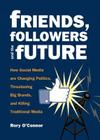
We’re all having enormous fun with the news that 38 Studios, the video-game company launched by Curt Schilling, is circling the drain after receiving some $75 million in guaranteed loans from the state of Rhode Island.
Schilling has never been shy about expressing his views as a small-government Republican. Old friend (you knew there had to be a Backscratching Day angle, didn’t you?) Steve Syre offers a particularly choice morsel in his Boston Globe column:
Schilling is a self-described conservative with a disdain for big government, which he considers intrusive and overbearing. He is a big believer in people helping themselves and solving their own problems.
A couple of lines from an old post on Schilling’s blog, 38 pitches, sums it up:
“If a conservative is down-and-out, he thinks about how to better his situation.
“A liberal wonders who is going to take care of him.”
Entertaining though Schilling’s hypocrisy may be, that’s pretty small beans compared to the monumentally two-faced philosophy of Joe Ricketts, who may or may not be willing to fund a $10 million Super PAC campaign against President Obama centered largely around his controversial former pastor, the Rev. Jeremiah Wright.
Jim Rutenberg and Jeff Zeleny report in the New York Times that Ricketts appeared to be motivated “primarily by his belief that government spending is out of control and that Mr. Obama cannot be trusted to rein in the deficit and reduce the national debt.” Which is what makes this all the more delicious: the Ricketts family, which owns the Chicago Cubs, is seeking $300 million in taxpayer money from the city and state in order to renovate Wrigley Field.
Chicago Mayor Rahm Emanuel, a former chief-of-staff to Obama, has been working hard to come up with $100 million in city money for the Cubs, according to Greg Hinz of Crain’s Chicago Business (thanks to Kurt Hartwig for the link).
And Jim Warren of the Daily Beast quotes an unnamed Emanuel aide as saying, “The mayor is pissed. Very pissed. Very, very pissed.”
The Cubs are run by Joe Ricketts’ son Tom, whom the Times describes as apolitical. But the Cubs are by all accounts a family affair, with Hinz calling Joe Ricketts the “patriarch of the Chicago Cubs’ owning family.”
As it turns out, Joe Ricketts has 300 million reasons not to throw the Wright stuff at Obama.
Photo (cc) by Chris Brown and republished here under a Creative Commons license. Some rights reserved.





On gay marriage, real names and a real discussion
By Dan Kennedy
On May 11, 2012
In Media
Howard Owens
I’ve long been an admirer of Howard Owens’ real-names policy for online commenters. It’s one of the reasons I adopted it for Media Nation a couple of years ago. So I was intrigued when he tweeted this morning, “When you manage your comment community correctly, you can run a poll on gay marriage and have the convo remain civil.”
I clicked through to his community-news site, The Batavian, in rural western New York. As I write this, 1,501 people had responded to his survey question: “Do you support gay marriage?” About 45 percent said “yes” and 55 percent said “no.” And Owens was right: I couldn’t find a non-civil comment among them.
What I found was an engaged and engaging discussion (with a bit too much esoterica on states’ rights for my taste), with Owens himself making occasional contributions — an important part of keeping the online conversation on track. Given the volatile nature of the topic, I asked him if he pre-screened the comments or had deleted any after they were posted. His answer: no, and no. Impressive.
I’m not entirely opposed to allowing anonymous comments. At the New Haven Independent, for instance, editor and founder Paul Bass argues that teachers, police officers and other stakeholders wouldn’t dare express their thoughts if they had to reveal their identities. The Independent is often held up as a model of community engagement.
Yet the Independent runs off the rails from time to time, and earlier this year Bass had to tighten up his guidelines — including requiring real-name registration, though anonymous commenting is still allowed.
I can’t say it enough: News organizations have to find effective ways to engage with their users. Just because it isn’t easy doesn’t mean it’s not worth doing. (You may thank me later for the triple negative.)